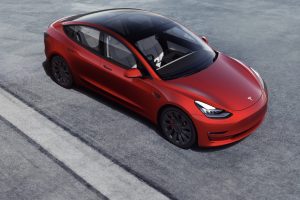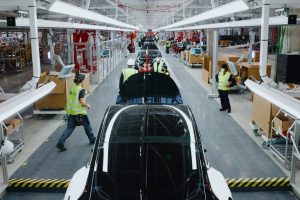- 🚗 The U.S. Department of Transportation allocated $623 million in grants to expand the electric vehicle (EV) charging infrastructure.
- 🔌 The grants aim to build EV charging stations in 22 states and Puerto Rico, totaling 47 projects and 7,500 new EV charging ports.
- 🌐 The Biden Administration is addressing the need for charging infrastructure as a crucial aspect of widespread EV adoption.
- 🎯 President’s goal: Install half a million EV chargers across the U.S. by 2030 to support the growing market share of EVs.
- 🏢 Public charging infrastructure is essential for those without home charging options, such as apartment or townhome residents.
- 💰 The funding is part of the Bipartisan Infrastructure Deal’s $2.5 billion discretionary grant program.
- 💡 Several regions, including New Jersey, Maryland, Contra Costa County, and Energy Northwest, have already received portions of the funding for charging projects.
Electric vehicles (EVs) are steering the future of transportation, and the United States is making a significant investment to ensure a smooth ride. The U.S. Department of Transportation has recently earmarked an impressive $623 million in grants, signaling a commitment to expanding the EV charging infrastructure across the nation. In this blog post, we’ll delve into the details of this substantial investment, exploring its implications and the broader landscape of the electric vehicle revolution.
A Charge Towards Progress
- Grant Allocation and Scope 🚗
- The allocated funds are substantial, amounting to $623 million, indicating a serious push for progress in EV infrastructure.
- The focus is on building EV charging stations in 22 states and Puerto Rico, a commendable effort spanning 47 projects and the creation of 7,500 new EV charging ports.
- Biden Administration’s Vision 🌐
- The Biden Administration recognizes the pivotal role of charging infrastructure in the widespread adoption of EVs.
- Addressing the growing market share of EVs, President Biden has set an ambitious goal: installing half a million EV chargers across the U.S. by 2030.
Charging Ahead: Meeting Challenges
- Crucial for Widespread Adoption 🏢
- The absence of a robust charging infrastructure has been a significant hurdle in the path of Americans embracing zero-emissions vehicles.
- For those without the convenience of home charging, such as apartment or townhome residents, public charging infrastructure becomes a lifeline.
- Economic Impacts 💰
- The funding stems from the Bipartisan Infrastructure Deal’s $2.5 billion discretionary grant program, underlining the economic commitment to sustainable transportation.
- This substantial investment is not just a move towards environmental responsibility but also an economic stimulus, creating jobs and fostering innovation in the EV sector.
Regional Boost: A Glimpse into Allocations
- Strategic Funding Allocations 💡
- Several regions have already received portions of the funding, showcasing a strategic approach to EV infrastructure development.
- New Jersey, Maryland, Contra Costa County, Energy Northwest, and even the town of Haines are among the beneficiaries, each receiving varying amounts for tailored charging projects.





